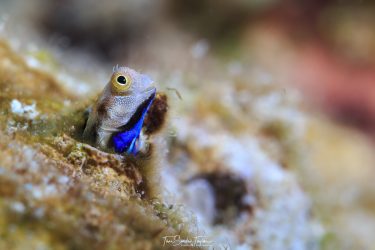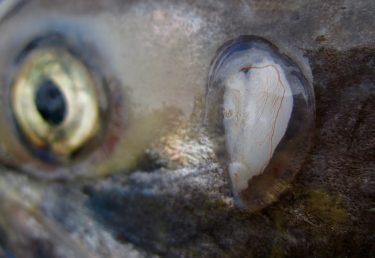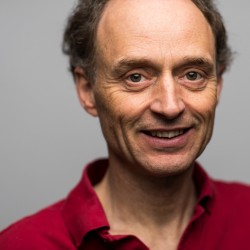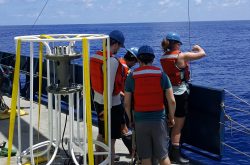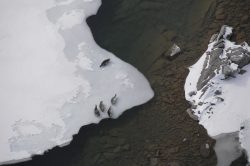The College is pleased to announce the following undergraduate and graduate scholarships awarded for 2019-20.
Del Rio Endowed Environmental Studies Scholarship
The Del Rio Family Foundation established the Del Rio Endowed Scholarship Fund for Environmental Studies to encourage and support students with an interest in the environment who are participating in the Educational Opportunity Program, which promotes academic success and graduation for underrepresented ethnic minority, economically disadvantaged and first generation college students at the University of Washington. The Foundation hopes that through their studies and participation in real-world environmental research and problem-solving, students will broaden their personal horizons to include issues of global concern and will develop a passion and the skill set for making a difference in the world.
Recipients
- Xin Deng*, senior, Environmental Science and Terrestrial Resource Management
- Emily Seaman, incoming freshman, Marine Biology
* Continued funding from 2018-19
Nancy Wilcox Endowed Scholarship
This scholarship is made possible by the generosity of former UW Provost Phyllis Wise, who established it to support students pursuing degrees in the College of the Environment. Dr. Wise named the endowment in honor and memory of her late sister, Nancy E. Wang Wilcox, a middle school teacher who tried to develop the minds of young adolescents using creative and innovative ways of learning. It is this legacy that inspired Provost Wise to establish this endowment to carry on her sister’s commitment to helping others achieve their educational goals.
Recipients
- Raphael Bakin, incoming freshman, Atmospheric Sciences
- Eric Anderson*, junior, Environmental Science and Terrestrial Resource Management
* Continued funding from 2018-19
Clarence H. Campbell Endowed Lauren Donaldson Scholarship
Clarence H. Campbell established this scholarship in memory of Lauren “Doc” Donaldson to support students in the Schools of Aquatic and Fishery Sciences, Marine and Environmental Affairs, and Oceanography. Professor Donaldson earned his MS and PhD degrees from the UW in 1931. He served on the faculty of the School of Fisheries from 1932 until his retirement in 1973. Doc was a world-renowned expert in development of fish stocks, and trained countless students in freshwater fisheries research and management. Clarence Campbell, ’30, established this fund to recognize Doc’s lasting influence.
Recipients
- Kyla Bivens*, senior, Aquatic and Fishery Sciences
- Andrew Chin*, senior, Aquatic and Fishery Sciences
- Miya Freeman, sophomore, Marine Biology
- Jules Yearous, incoming freshman, Marine Biology
- Eilish Jasper, incoming freshman, Marine Biology
- Emily Seaman, incoming freshman, Marine Biology
* Continued funding from 2018-19
Dani Elenga Environment Scholarship – new this year!
Sigrid Elenga and Steve Smyth established the Dani Elenga Environment Scholarship in memory of their daughter, Dani Elenga, to encourage and support students with an interest in the environment who are participating in the Educational Opportunity Program, which promotes academic success and graduation for underrepresented ethnic minority, economically disadvantaged and first-generation college students at the UW.
Recipients
- Kylie Sahota, senior, Aquatic and Fishery Sciences
- Angel Sar, senior, Aquatic and Fishery Sciences and Marine Biology
- Perla Moran, senior, Environmental Studies
- Olivia Cavalluzzi, incoming freshman, Environmental Studies
College of the Environment Scholarship
This scholarship is made possible by the generosity of donors. The scholarship was created to support both undergraduate and graduate students pursuing degrees in the College of the Environment.
Recipients
- Raphael Bakin, incoming freshman, Atmospheric Sciences
- Rachael Johnson, sophomore, Bioresource Science and Engineering
- Luke Schefke, senior, Earth and Space Sciences
- Iona Rohan*, senior, Environmental Science and Terrestrial Resource Management
- Chloe Rabinowitz, incoming freshman, Environmental Science and Terrestrial Resource Management
- Anna Gavrylko*, sophomore, Environmental Studies
- Caitlin Kelly, junior, Environmental Studies
- Ian Murphy, incoming freshman, Environmental Studies
* Continued funding from 2018-19
Graduate Opportunity Program Research Assistantship (GOP-RA) Award
This award is made possible by the Graduate Opportunities & Minority Achievement Program (GO-MAP), a unit in the UW Graduate School. The award combines funding matched by the Graduate School and the recipient’s department for a total of two years of graduate support.
Recipient
- Haila Schultz, incoming graduate student, Oceanography
College of the Environment Top-Off Award
This award is offered to top ranked incoming graduate student applicants across the College and provides a one-time payment to be used as the student sees fit to enhance their scholarly work at the University of Washington.
Recipients
- Logan Arnold, incoming graduate student, Quantitative Ecology and Resource Management
- Rachel Fricke, incoming graduate student, Aquatic and Fishery Sciences
- Ursula Jongebloed, incoming graduate student, Atmospheric Sciences
- Zoe Krauss, incoming graduate student, Oceanography
- Donald Radcliffe, incoming graduate student, Environmental and Forest Sciences
- Marie Zahn, incoming graduate student, Aquatic and Fishery Sciences
Integral Environmental Big Data Research Fund Award
This funding award supports graduate students who are incorporating a big data approach to their scholarly work. In this context, a big data project is defined as one where the student is focused on extracting information from large datasets through the use of interesting, innovative computational and analytic approaches, and where the object of the work is an exploration of emergent patterns and/or relationships of scientific interest.
Recipients
- Apryle Craig, current graduate student, Environmental and Forest Sciences
- Ariane Ducellier, current graduate student, Earth and Space Sciences
Hall Conservation Genetics Research Fund
This award is made possible by the generosity of Drs. Benjamin and Margaret Hall. During his 38 years in genetics, UW Professor Emeritus of Genome Sciences and Biology Benjamin “Ben” Hall made many key discoveries, including the patented invention “Expression of Polypeptides in Yeast” which the UW-licensed for the production of vaccines against Hepatitis B Virus and Human papillomavirus, as well as Human Insulin, and other recombinant proteins. This funding award supports graduate students working in the field of conservation genetics.
Recipient
- Victoria Fox, current graduate student, Environmental and Forest Sciences
Read More
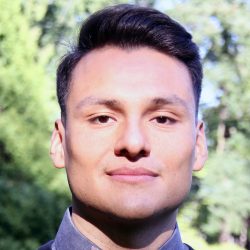 As a descendent of the Cora people of Nayarit, Mexico, woven into Daniel’s traditional textiles are mountains, rivers and plants. Ranging from belts to blankets, these woven pieces depict the landscape upon which Daniel’s indigenous culture evolved. As a Bonderman Fellow, he wants to learn the stories told in the handwoven textiles of the indigenous people around the world. On his voyage, Daniel would like to explore what natural landscape attributes have helped shaped the indigenous textiles and everyday lives of the native peoples. Daniel hopes to travel to Tibet, Nepal, India, Laos, Vietnam, Cambodia, Thailand, Bolivia, Peru and Ecuador.
As a descendent of the Cora people of Nayarit, Mexico, woven into Daniel’s traditional textiles are mountains, rivers and plants. Ranging from belts to blankets, these woven pieces depict the landscape upon which Daniel’s indigenous culture evolved. As a Bonderman Fellow, he wants to learn the stories told in the handwoven textiles of the indigenous people around the world. On his voyage, Daniel would like to explore what natural landscape attributes have helped shaped the indigenous textiles and everyday lives of the native peoples. Daniel hopes to travel to Tibet, Nepal, India, Laos, Vietnam, Cambodia, Thailand, Bolivia, Peru and Ecuador.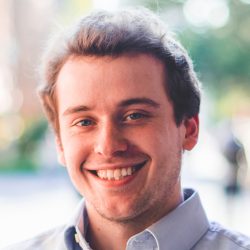 Thadeus plans to explore how people around the world rely on their natural spaces and resources, and how environmental protection laws may differ among countries. He also wants to see how a combination of government, citizens and indigenous people manage these unique and often imperiled places. Thadeus developed his knowledge of the United States’ laws regarding land use, park systems and endangered species through studies in resource management and wildlife conservation. He believes that with a greater understanding of other countries laws, or lack thereof, he will gain a better understanding of non-westernized laws and perspectives in his field. He hopes to visit countries with unique ecosystems including China, Nepal, Vietnam, Laos, Kenya, Tanzania, Zambia, Madagascar, Ecuador, Chile, Argentina and Papua New Guinea.
Thadeus plans to explore how people around the world rely on their natural spaces and resources, and how environmental protection laws may differ among countries. He also wants to see how a combination of government, citizens and indigenous people manage these unique and often imperiled places. Thadeus developed his knowledge of the United States’ laws regarding land use, park systems and endangered species through studies in resource management and wildlife conservation. He believes that with a greater understanding of other countries laws, or lack thereof, he will gain a better understanding of non-westernized laws and perspectives in his field. He hopes to visit countries with unique ecosystems including China, Nepal, Vietnam, Laos, Kenya, Tanzania, Zambia, Madagascar, Ecuador, Chile, Argentina and Papua New Guinea.



